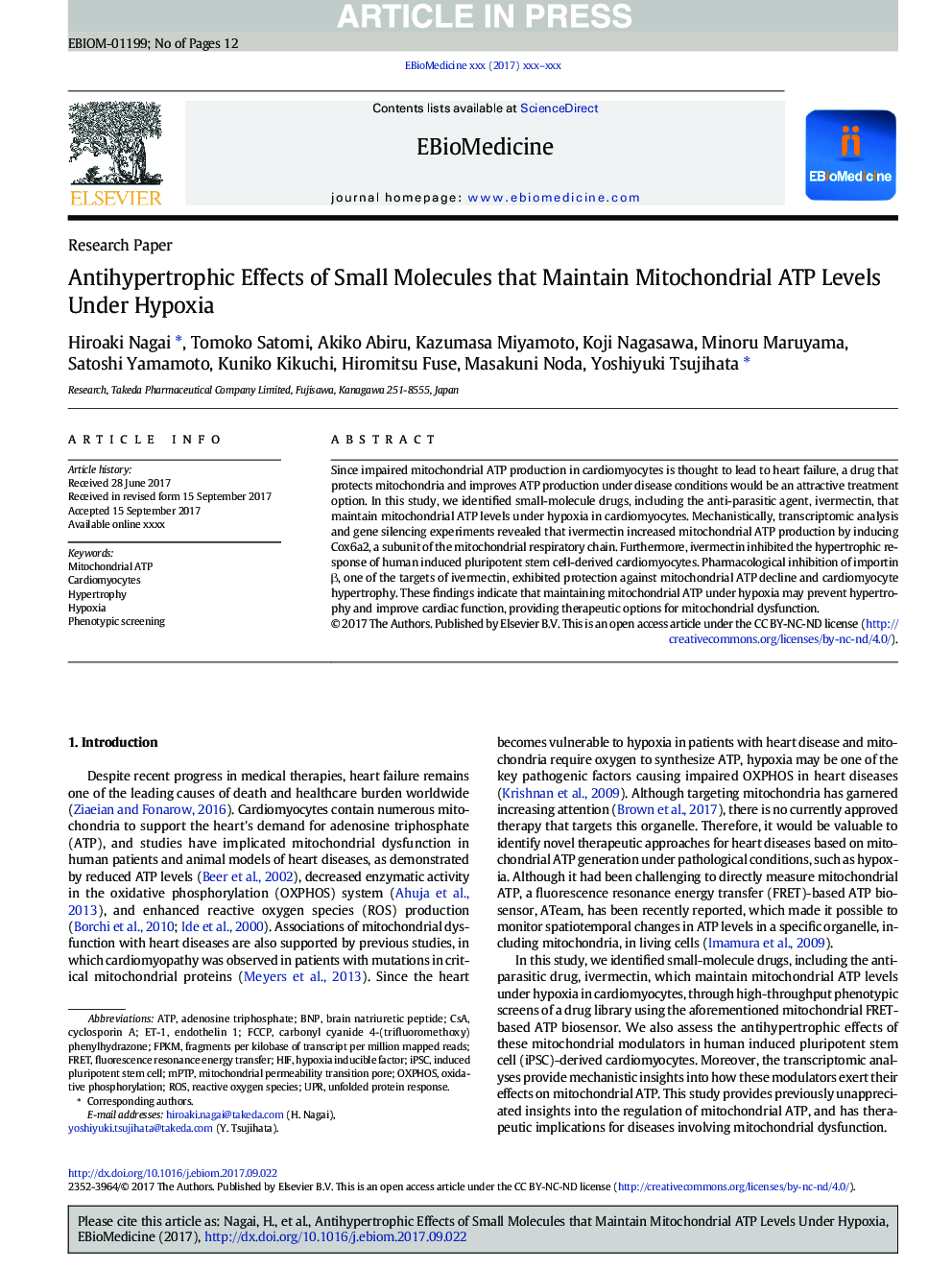| Article ID | Journal | Published Year | Pages | File Type |
|---|---|---|---|---|
| 8437981 | EBioMedicine | 2017 | 12 Pages |
Abstract
Since impaired mitochondrial ATP production in cardiomyocytes is thought to lead to heart failure, a drug that protects mitochondria and improves ATP production under disease conditions would be an attractive treatment option. In this study, we identified small-molecule drugs, including the anti-parasitic agent, ivermectin, that maintain mitochondrial ATP levels under hypoxia in cardiomyocytes. Mechanistically, transcriptomic analysis and gene silencing experiments revealed that ivermectin increased mitochondrial ATP production by inducing Cox6a2, a subunit of the mitochondrial respiratory chain. Furthermore, ivermectin inhibited the hypertrophic response of human induced pluripotent stem cell-derived cardiomyocytes. Pharmacological inhibition of importin β, one of the targets of ivermectin, exhibited protection against mitochondrial ATP decline and cardiomyocyte hypertrophy. These findings indicate that maintaining mitochondrial ATP under hypoxia may prevent hypertrophy and improve cardiac function, providing therapeutic options for mitochondrial dysfunction.
Keywords
FPKMHIFBNPIPSCOXPHOSUPRET-1FCCPMPTPROSAdenosine TriphosphateATPFluorescence resonance energy transferFRETmitochondrial permeability transition poreendothelin 1CSAInduced pluripotent stem cellcyclosporin APhenotypic screeningHypoxia Inducible FactorOxidative phosphorylationFragments per kilobase of transcript per million mapped readsCardiomyocytesHypertrophyHypoxiaUnfolded protein responsebrain natriuretic peptideCarbonyl cyanide 4-(trifluoromethoxy) phenylhydrazoneReactive oxygen species
Related Topics
Life Sciences
Biochemistry, Genetics and Molecular Biology
Cancer Research
Authors
Hiroaki Nagai, Tomoko Satomi, Akiko Abiru, Kazumasa Miyamoto, Koji Nagasawa, Minoru Maruyama, Satoshi Yamamoto, Kuniko Kikuchi, Hiromitsu Fuse, Masakuni Noda, Yoshiyuki Tsujihata,
